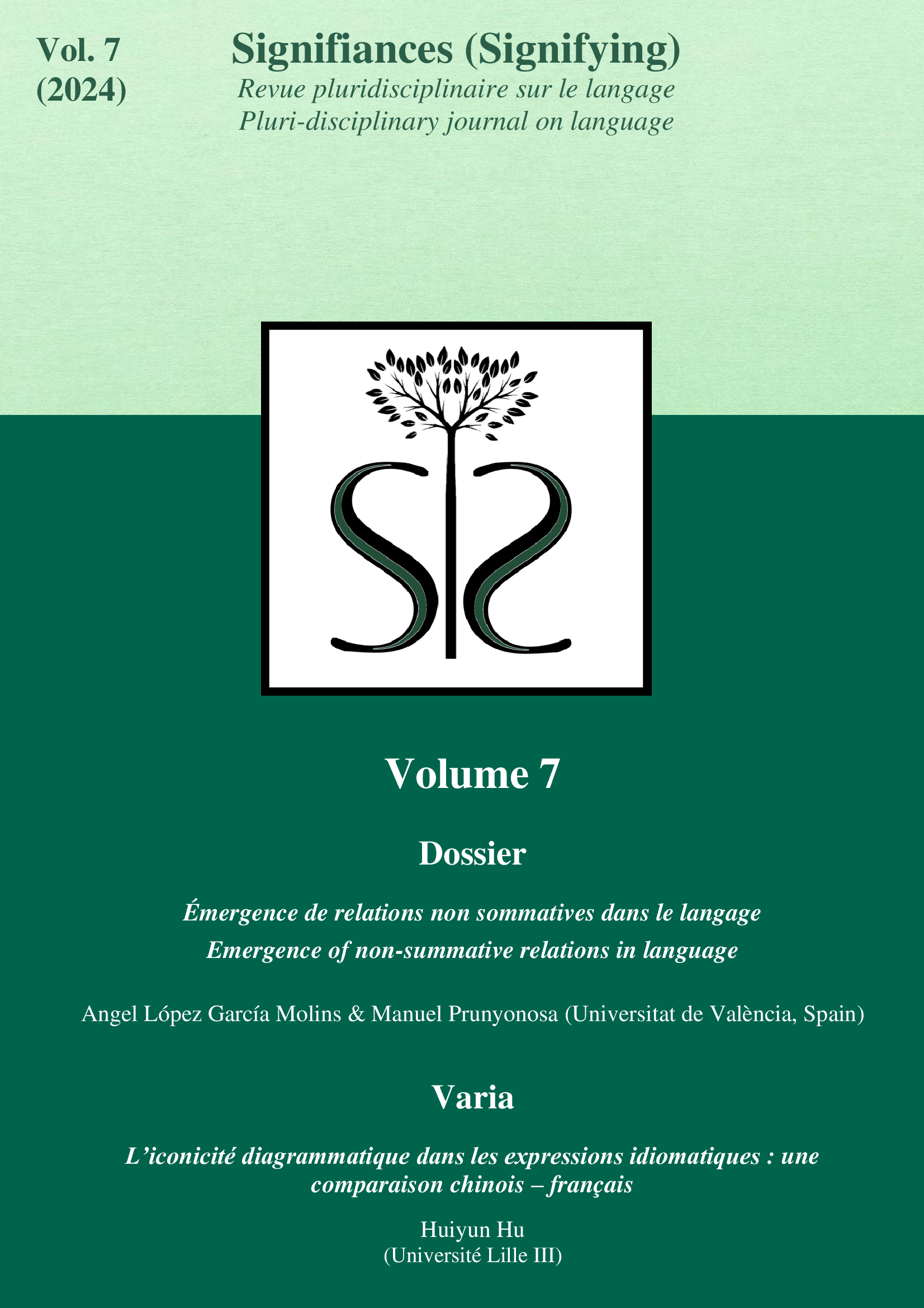A Note on the Suffix -i in Colloquial Spanish: Iconic Motivation, Distribution and Values
DOI :
https://doi.org/10.52497/signifiances.v7i1.361Résumé
The Diccionario de afijos del español contemporáneo (Fábregas 2023) reports the presence of an unstressed suffix -i, “of uncertain origin, possibly sound symbolic”, in Spanish. Fábregas notes that this suffix is primarily found in noun hypocoristics (e.g. Paqui, Juani, Pedri) but it also attaches to other categories, including adjectives (e.g. cuqui ‘cute’) and terms of address (e.g. mami ‘mummy’, cari ‘dear’). This article has three main goals. Firstly, building on previous studies as well as an examination of additional colloquial Spanish data, I aim to describe the specific distribution of the suffix, exploring whether there are other bases to which it may attach. Secondly, I examine the main semantic and pragmatic values of the affix, noting its productivity in colloquial Spanish, particularly among certain groups of speakers. Finally, building upon traditional and more recent works on sound symbolism, and drawing from the enactive theory of language, I discuss why the suffix -i may be said to have acquired iconic meanings among Spanish-speakers.
Le Diccionario de afijos del español contemporáneo (Fábregas 2023) signale la présence d’un suffixe atone ‑i, « d’origine incertaine, probablement symbolique du son », en espagnol. Fábregas note que ce suffixe se trouve principalement dans les hypocoristiques de noms (par exemple, Paqui, Juani, Pedri), mais il se fixe également à d'autres catégories, y compris les adjectifs (par exemple, cuqui ‘joli’) et les termes d'adresse (par exemple, mami ‘maman’, cari ‘chéri’). Cet article a trois objectifs principaux. Premièrement, en s’appuyant sur des études antérieures ainsi que sur l’examen de données supplémentaires en espagnol colloquial, je cherche à décrire la distribution spécifique du suffixe, explorant s’il peut se fixer à d’autres bases. Deuxièmement, j’examine les principales valeurs sémantiques et pragmatiques de l’affixe, notant sa productivité en espagnol colloquiale, en particulier parmi certains groupes de locuteurs. Enfin, en m’appuyant sur des travaux traditionnels et plus récents sur la symbolique sonore, et en m’inspirant de la théorie énactive du langage, je discute les raisons pour lesquelles le suffixe ‑i pourrait avoir acquis des significations iconiques parmi certains groupes d’hispanophones.


